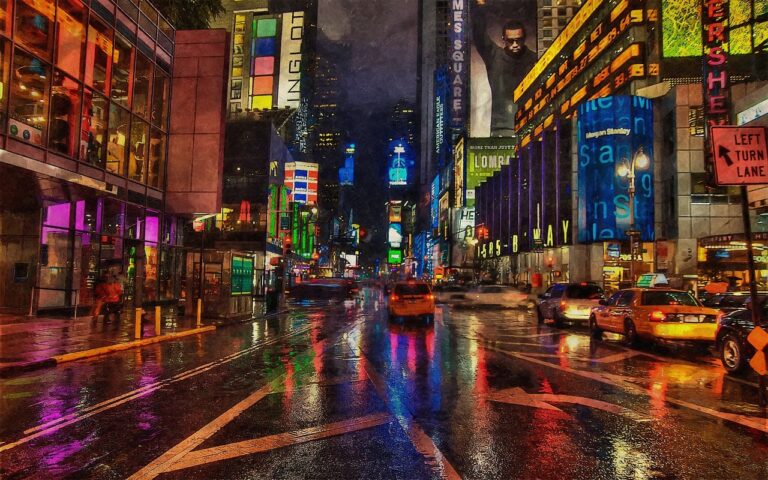The Future of Accommodation: From Capsule Hotels to Airbnb Experiences
Accommodation is an essential aspect of travel, shaping the overall experience and influencing travelers’ decisions. As technology advances and consumer preferences shift, the accommodation industry is constantly evolving to meet the changing needs of travelers. From traditional hotels to unique lodging options like capsule hotels and Airbnb experiences, the future of accommodation is more diverse and innovative than ever before.
The Rise of Capsule Hotels
Capsule hotels have been gaining popularity in recent years, particularly in urban areas where space is limited and accommodation costs are high. These compact, minimalist hotels offer travelers a unique and affordable lodging option, with small individual pods that provide a bed, storage space, and sometimes a small TV or other amenities. Capsule hotels are popular among budget-conscious travelers who are looking for a convenient and efficient place to stay.
One of the key advantages of capsule hotels is their efficient use of space. By stacking individual pods vertically, these hotels can accommodate a larger number of guests in a smaller footprint compared to traditional hotel rooms. This makes them ideal for densely populated cities where real estate is at a premium.
Another appeal of capsule hotels is their affordability. With smaller, no-frills accommodations, these hotels can offer competitive rates that appeal to budget travelers. Some capsule hotels also offer unique amenities such as communal lounges, coworking spaces, and on-site restaurants, creating a social and communal atmosphere that appeals to a younger demographic.
The Evolution of Airbnb Experiences
In recent years, Airbnb has disrupted the traditional accommodation industry by offering travelers a more personalized and authentic lodging experience. Instead of staying in conventional hotels, guests can choose to stay in local homes, apartments, or even unique properties like treehouses or houseboats. This concept of “living like a local” has resonated with travelers seeking a more immersive and authentic travel experience.
One of the key advantages of Airbnb experiences is the personalized touch they offer. Hosts can provide personalized recommendations, local insights, and unique amenities that create a more personalized and memorable stay for guests. This human touch is often missing in traditional hotels, where guests may feel like just another customer.
Another appeal of Airbnb experiences is the variety of options available to travelers. From luxury villas to budget-friendly apartments, Airbnb offers a diverse range of accommodations that cater to different budgets and preferences. This flexibility allows travelers to find accommodations that suit their needs, whether they are looking for a romantic getaway, a family-friendly stay, or a solo adventure.
The Impact of Technology on Accommodation
Technology has played a significant role in shaping the future of accommodation, from the rise of online booking platforms like Booking.com and Expedia to the integration of smart devices and automation in hotels. These technological advancements have improved the efficiency and convenience of booking accommodations, enhancing the overall guest experience.
One of the key technological trends shaping the future of accommodation is the adoption of smart devices and automation. Hotels are increasingly implementing technologies like keyless entry systems, automated check-in kiosks, and in-room tablets to enhance convenience and efficiency for guests. These technologies not only streamline the check-in process but also offer guests a more personalized and interactive experience during their stay.
Another technological trend that is revolutionizing the accommodation industry is the use of data and analytics. By collecting and analyzing guest data, hotels can better understand their guests’ preferences and behavior, allowing them to tailor their services and amenities to meet their needs. This data-driven approach enables hotels to create more personalized and memorable experiences for their guests, fostering guest loyalty and satisfaction.
The Future of Accommodation: Trends to Watch
As the accommodation industry continues to evolve, several trends are shaping the future of lodging options for travelers. From sustainability initiatives to experiential accommodations, these trends are influencing how accommodations are designed, marketed, and experienced by guests.
Sustainability Initiatives
One of the key trends shaping the future of accommodation is the emphasis on sustainability and eco-friendly practices. With growing concerns about climate change and environmental impact, travelers are increasingly seeking accommodations that prioritize sustainability, from energy-efficient buildings to waste reduction initiatives. Hotels that implement sustainable practices not only appeal to environmentally conscious travelers but also contribute to a more sustainable future for the hospitality industry.
Some hotels are taking sustainability initiatives a step further by incorporating renewable energy sources, reducing water consumption, and implementing recycling programs. By adopting green practices, these hotels not only reduce their environmental footprint but also create a unique selling point that appeals to eco-conscious travelers.
Experiential Accommodations
Another trend shaping the future of accommodation is the rise of experiential accommodations that offer guests a more immersive and personalized stay. From themed hotels to unique lodging experiences like glamping or luxury treehouses, these accommodations provide guests with a unique and memorable experience that goes beyond traditional hotel stays.
Experiential accommodations cater to travelers seeking a more immersive and authentic travel experience, with personalized amenities, activities, and services that cater to their interests and preferences. These accommodations often offer curated experiences such as cooking classes, guided tours, and wellness retreats, creating a more memorable and engaging stay for guests.
Conclusion
The future of accommodation is diverse, innovative, and constantly evolving to meet the changing needs of travelers. From capsule hotels to Airbnb experiences, the accommodation industry offers a wide range of options that cater to different budgets, preferences, and travel styles. With technological advancements, sustainability initiatives, and experiential accommodations shaping the future of lodging, travelers can look forward to a more personalized, immersive, and sustainable travel experience in the years to come.
FAQs
1. What are the advantages of staying in a capsule hotel?
Staying in a capsule hotel offers several advantages, including affordability, efficiency in space utilization, and unique amenities that cater to budget-conscious travelers.
2. How do Airbnb experiences differ from traditional hotel stays?
Airbnb experiences offer travelers a more personalized and authentic lodging experience, with the opportunity to stay in local homes, apartments, or unique properties that provide a more immersive and local experience compared to traditional hotels.
3. How is technology shaping the future of accommodation?
Technology is playing a significant role in shaping the future of accommodation, with trends like the adoption of smart devices, automation, and data-driven analytics enhancing the convenience, efficiency, and personalization of guest experiences in hotels.





